Industry rules, standards and guidelines exist to help the schedule logic and contribute to its overall quality, and software tool such as ScheduleReader, Deltek Acumen Fuse and others have been created to make their implementation in practice easier.
We would like to further explore some of the most used standards for schedule analysis available today: the assessment based on the 14 points from the Defence Contract Management Agency. We will also provide a short overview of software tools that can help execute the analysis in practice.
In order to ensure that government contracts and particularly those for the department of defense are completed in a timely, cost-effective manner, and as per the required quality, an independent organization for contract delivery was established on 27-Mar-2000.
The Defense Contract Management Agency was established in 2000, with a goal to ensure that government contracts, in particular the ones related to the DoD, are completed in a timely, cost-effective manner, fulfilling the quality requirements.
It managed contracts worth trillions of dollars worldwide. Hence, a robust contract management, with several metrics and evaluation criteria for schedule compliance has been established, containing best practices and project management requirements. 14 assessment metrics are being used to analyze the project baseline activities.
It is important to note that this report assesses activities with a duration greater than Zero (>0), meaning that zero duration activities such as Milestones are not considered. This is in line with the concept and purpose of the 14-points checkup as explained in the coming sections.
In addition to the widely used DCMA schedule assessment, it is worth pointing out that there are other schedule quality tests by other agencies and industries such as:
- NASA Health Check Metric Descriptions,
- United States Government Accountability Office (GAO) Metric Descriptions,
- DECM (DCMA EVMS Compliance Metrics), previously known as EVAS.
Commonly Used Software Tools for Schedule Quality Review and Analysis
If you are involved in P6 scheduling, you will find many extensions, add-ons, and software tools that perform schedule review analysis.
ScheduleReader, Deltek Acumen Fuse are example of tools that are most used in the field of project control to perform schedule quality reviews and analysis, since there is an array for of reasons for the need of such software, such as:
- Schedule health check,
- Time-saving (Poor schedules can be identified early on),
- Cost-saving (Enforces project owners to implement more effort and assign resources to planners for proper project control),
- Supports forensic planners in the delay analysis process,
- Output can be easily shared with non-planners.
ScheduleReader
ScheduleReader is a stand-alone software product for viewing, analyzing and reporting on project schedule data, that can generate a DCMA 14 report from existing schedule data with only a click of button.
Smooth, cost-efficient and straightforward, ScheduleReader is directly compatible with project data in the .XER and .XML schedule format, or in other words, project files that are created in and exported from the Primavera P6 software.
The reporting functionality is available in the PRO version of the Reader, and enjoys positive feedback from the scheduling community and client companies. Let’s explore the schedule health check available in ScheduleReader into more detail:
Below is a Baseline project for a Hotel project (without update) in ScheduleReader. The layout is “clean” and is smoothly displayed without software lag:
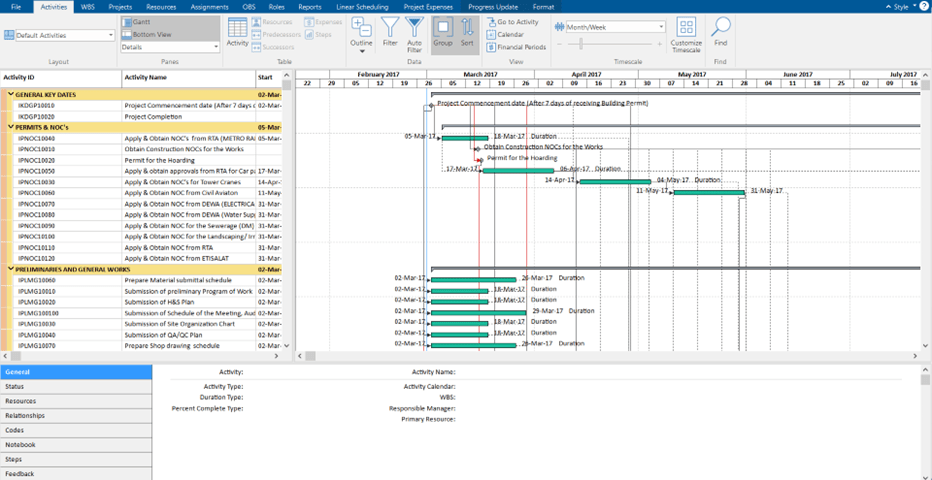
To proceed to the analysis section, go to the Tabs section. You will directly find the DCMA metrics tool and other tools in a straightforward and easy manner:
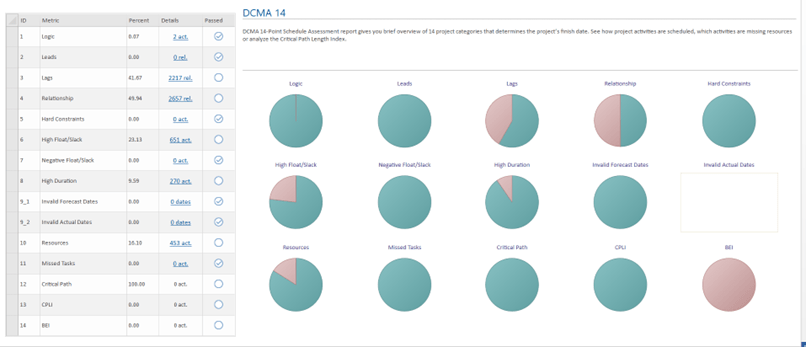
It is also worth mentioning that the formula and test limits can be easily adjusted as shown below. This is very important as not all the projects are the same and the default DCMA14 % for passing are indicative.
The limits settings can be adjusted according to the planner’s view, project requirements, and specific circumstances as shown below:
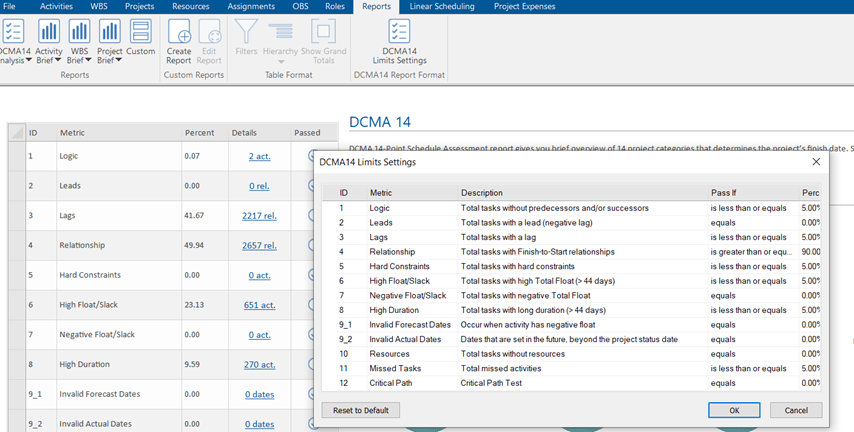
The short video tutorial illustrates further illustratates how simple it is to analyze the schedule health with ScheduleReader:
In addition to this specific report, ScheduleReader features several pre-defined report templates, including Activity Metrics, Relationship Types and Constraint Types based on the DCMA 14 framework, and provides further support for creating custom reports from existing schedule data.
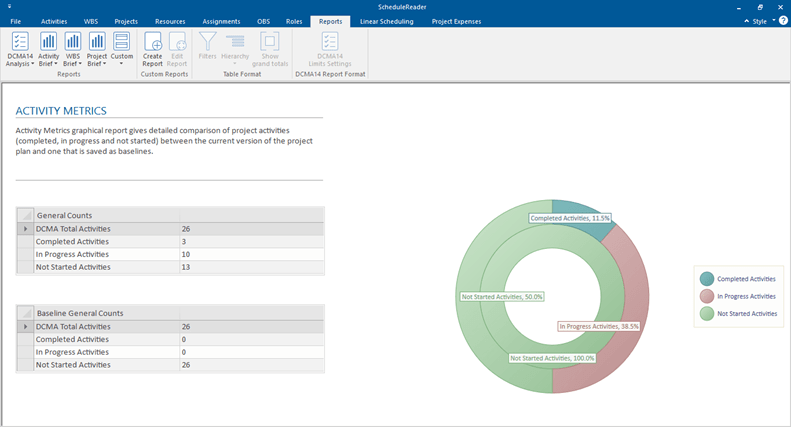
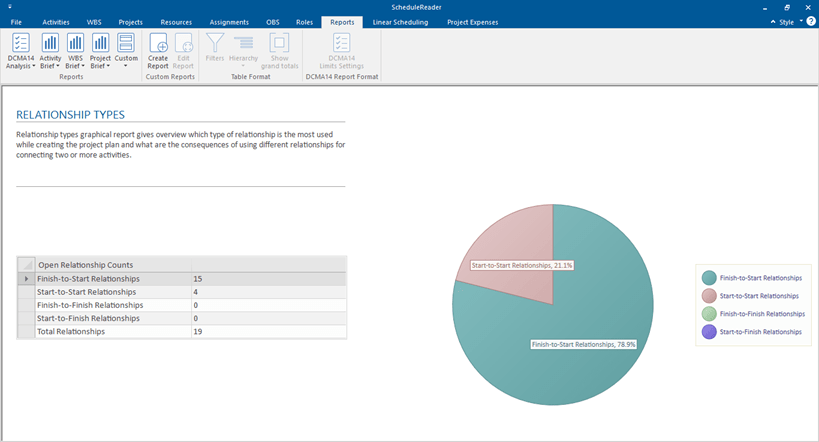
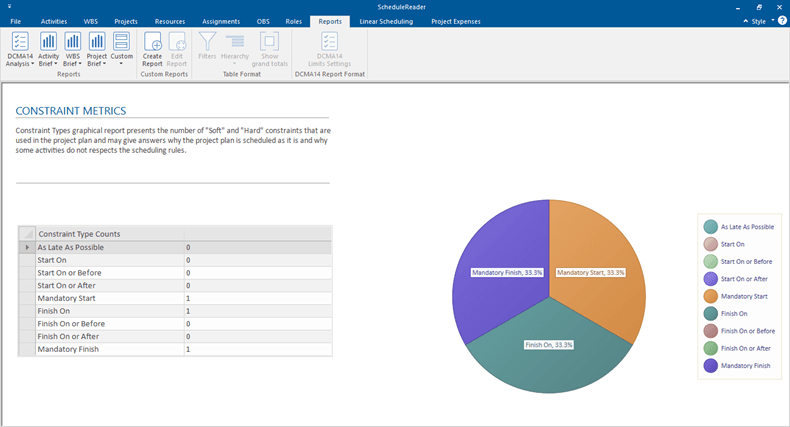
It is worthy to point out that other Project, WBS and Activity type reports in the form of pre-defined report templates, generated with a click of a button are also available in the Reader:
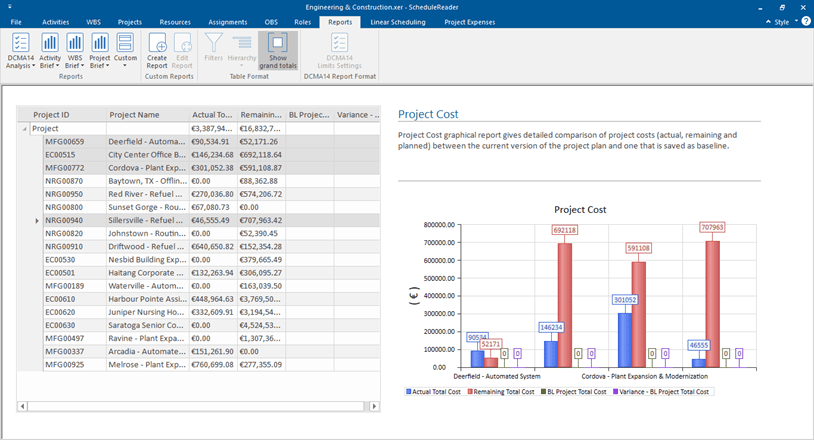
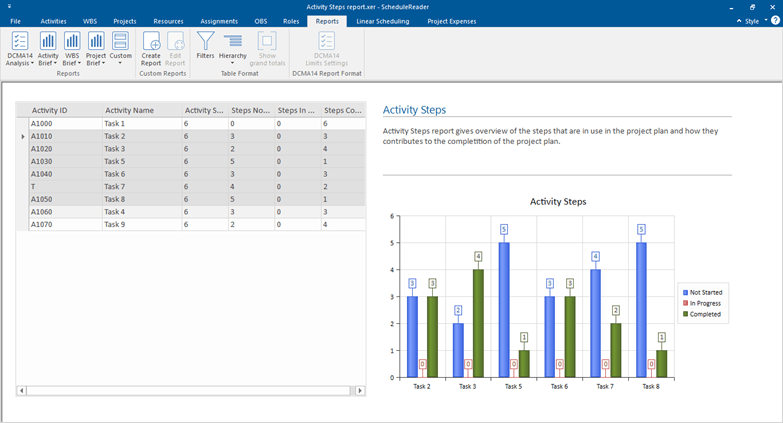
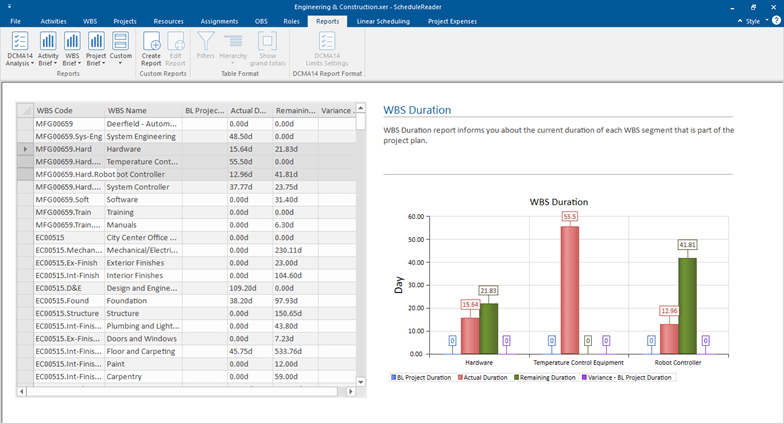
At the outset, ScheduleReader is very user-friendly, simple to use and additionally supports many other types of XER analysis that will be helpful to the planner, as well as comprehensive, dynamic visual reports that stakeholders can easily comprehend.
Furthermore, the data from the generated reports can also be copied into Excel for different types of analysis and the limits of the health checks modified to user’s preferences.
The fully featured version of the software is available for download for a 15-day free trial period for testing and evaluation purposes.
Deltek Acumen Fuse
Deltek’s Acumen Fuse falls under Acumen’s suit of functionalities for schedule analysis and optimization used while managing projects and project portfolios, such as 360, Risk and the Deltek Acumen Fuse, that is commonly used for schedule quality analysis based on the popular DCMA checks.
To best demonstrate the analysis report on Deltek Acumen Fuse, we find the following video quite helpful:
Analyzing and Reporting Schedule Health
A good planner must always understand the nature of his project and the industry specifics before committing to a certain testing methodology to ensure the right software is used and proper project control techniques are implemented.
Having a firm understanding of the different testing methods and metrics and the technical capabilities of different software solutions is also very important in this regard, as software tools exist to help the schedulers perform the analysis, testing and reporting. In addition to the Deltek Acumen Fuse software, this article provided a short overview of the ScheduleReader software and its capabilities for schedule analysis and reporting project health.
ScheduleReader is much more than a tool for schedule health analysis and reporting.
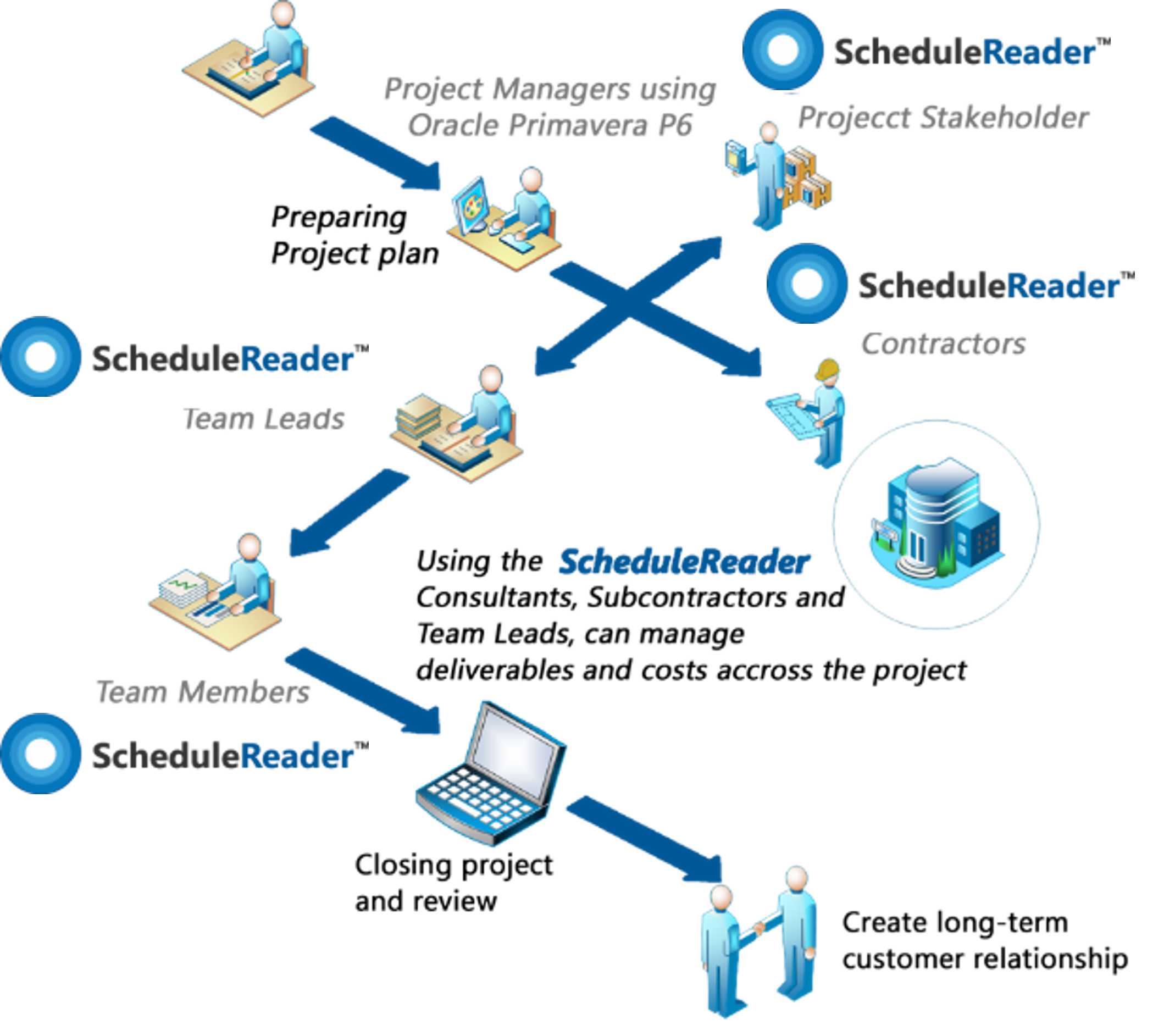
At its core, it is a comprehensive viewer for XER and XML schedules that the broader project team can use to view their tasks, assignments and different elements of the schedule, through the many views such as Activities, WBS, Resources, Projects, Assignments, OBS, Roles and Linear Scheduling.
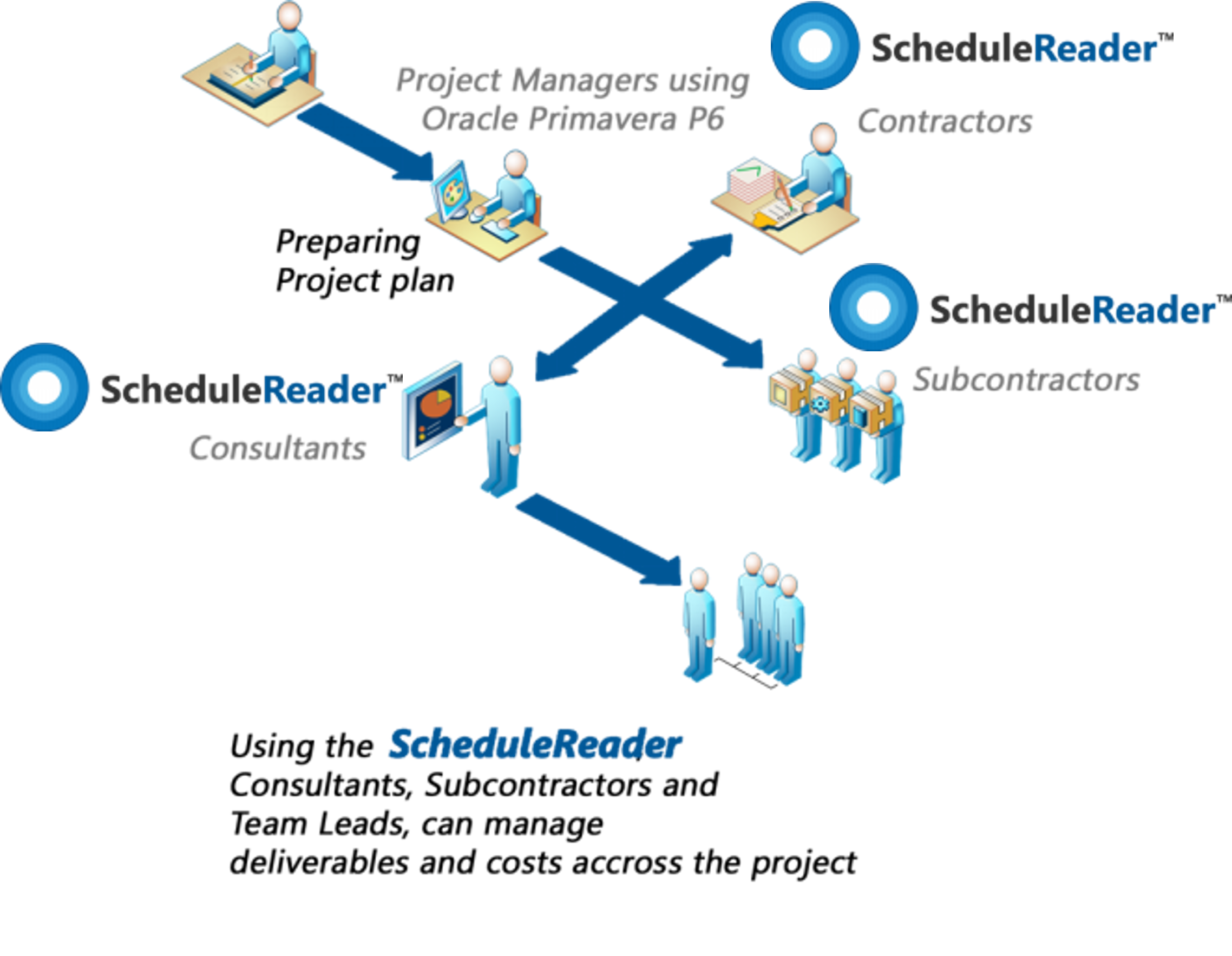
ScheduleReader is well suited for single, individual use as well as oriented towards enterprise use and is available as a 15-day fully featured free trial version for testing and evaluation purposes.

